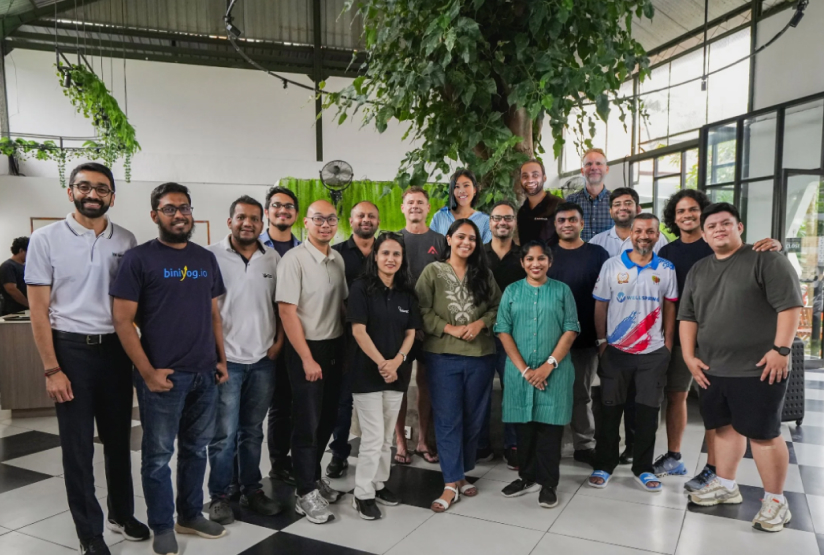

Why Do Local Startups Incorporate Abroad?

Newsletter
Mohi is the Principal at Anchorless Bangladesh, a New York-based venture capital firm where he leads investments in Bangladeshi startups. His prior experience includes roles at Truvalu, an impact investing company, and Maslin Capital Limited, a local private equity firm. Mohi holds a Bachelor of Business Administration from the Institute of Business Administration (IBA) at the University of Dhaka and has completed the CFA and CAIA programs.
One of the key dilemmas founders face when formalizing their startups is choosing the most suitable structure and jurisdiction for incorporation. Typically, local founders either opt for a single-entity incorporation in Bangladesh or adopt a dual-entity structure, which involves setting up a parent company in a “startup capital” such as Delaware1 (DE), Singapore (SG)2, or more recently, Dubai, along with a local subsidiary in Bangladesh.

While the dual-entity structure is relatively more complex and costly, foreign VCs often prefer or even require, startups to adopt this approach. But why is this structure favored, and can Bangladesh implement any regulatory or policy changes to shift the status quo?
The short answer is: not really—at least not in the short or mid-term.
Many argue that relaxing Bangladesh’s conservative capital repatriation policies, which govern the transfer of money abroad, could encourage foreign VCs to abandon the parent-subsidiary structure and invest directly in local Bangladeshi entities. While this might address one of their concerns, it would likely do little to change their overall decision.
The reality is that a combination of factors, beyond just capital repatriation, drives VCs to invest in startup capitals rather than directly in the country of operation. Investors prioritize not only capital mobility but also other key factors such as up-to-date legal frameworks, enforceability of agreements, consistency and predictability in judicial rulings, and the availability of expedited dispute resolution processes when making investment decisions. Jurisdictions like DE and SG offer these advantages, along with standardized legal frameworks and compelling fiscal incentives - factors that are largely absent or underdeveloped in emerging markets like Bangladesh. This makes it challenging for Bangladesh to compete on equal footing and the table below elaborates how DE, SG, and similar jurisdictions have developed their frameworks to accommodate these investor requirements.



The factors outlined above highlight that establishing a foundation of legal precedents and improving investor confidence is not simply a matter of policy adjustments or effort, but also a function of time, and hence cannot be replicated overnight. However, one way to expedite the progress is by developing the local stock market to enable startups to list, thus providing investors with a liquid and profitable pathway for exit. Of course, in the case of Bangladesh, significant work is needed to build an institutionally driven, efficient, and deep market - key ingredients for ensuring fair startup valuations. Nevertheless, this approach has already proven successful in India, where an increasing number of startups are opting to establish their headquarters domestically or relocating back to India (called reverse flipping) due to the opportunity to list on its stock exchange, reinforcing the adage that “money talks and investors flock.”
But is the current structure significantly unfavorable to Bangladesh in terms of foreign fund flow? The simple answer is no, not at this stage, as the startup ecosystem is still in its infancy and largely made up of early-stage ventures. This early-stage composition benefits the country for several reasons:
- Inflow from Parent Co: The early-stage nature of most startups means they are typically burning cash, running negative balances which need to be financed by investor money. When a parent company raises funds abroad, such as in SG, a significant portion is remitted to its local entity in Bangladesh to cover the shortfall. While a small percentage may remain abroad to cover expenses such as corporate secretarial services, legal fees, or tech subscriptions, the majority of the funds (likely over 80%, and potentially more in the future if local entities are permitted to pay tech subscriptions directly from Bangladesh) flows into the country to fund day-to-day operations. As a result, despite the indirect structure, most of the capital raised abroad finds its way into the local economy.
- No to minimal outflow from Founders: Startup capitals typically permit the issuance of shares at a minimal nominal amount, often as low as $1 for all the shares issued. This practice is common among startups already incorporated abroad, resulting in little to no funds flowing out of the country on account of founders holding shares abroad.
- No expected outflow from Dividends: As startups mature and begin to generate positive cash balances, these funds will likely be reinvested locally to drive further growth rather than distributed as dividends to shareholders abroad. Startup investors typically prioritize maximizing the company's value for a lucrative exit and significant capital gains over receiving dividend payouts. As a result, little to no money is anticipated to flow out of the country from this avenue in the short to mid-term.
From the perspective of inflow and outflow, it is important to note that the current structuring does not lead to any significant outflow or shortfall; in fact, it tends to do the opposite. While moral and ethical shortcomings of individuals may influence the fund flow, it does not indicate a flaw in the structuring itself. However, one might wonder what happens when there is an exit or share sale abroad - does money then flow back to Bangladesh? With regards to foreign investors (shareholders) exiting, the net fund flow is likely to result in a similar outcome in both scenarios. Exiting foreign investors will withdraw funds from either jurisdiction (foreign or Bangladesh) to return to their limited partners (LPs), leading to a net outflow (if sold locally) or a net zero balance (if sold to another foreign investor).
In the case of a local founder exiting, the key issue is whether the proceeds are repatriated back to Bangladesh. Current Bangladesh Bank regulations stipulate that these funds be declared and brought back within a specified timeframe. Barring ethical considerations, the net flow should thus remain positive, and likely be comparatively higher, as shares are valued more favorably abroad than if priced locally.
In summary, startup capitals offer a level of stability, predictability, and investor protection that are not only challenging to replicate but require time to cultivate. At present, it is more advantageous to strategically leverage this established global system rather than attempt to bypass it. By prioritizing transparency over policing shareholdings abroad, Bangladesh can utilize the international recognition and credibility of startups incorporated in locations like DE and SG. This approach can help foster trust, ease capital-raising efforts, and facilitate substantial future exits, enabling successful founders to reinvest in the ecosystem as investors themselves.
1 Delaware is a leading domicile for U.S. and international corporations and a staple among San Francisco and Silicon Valley tech companies. For instance, Delaware hosts over two million companies including 67% of all Fortune 500 companies and roughly 80%+ of all US 2020 to 2023 initial public offerings.
2 SG hosts the highest number of completed regional headquarters in the past 10 years in Asia Pacific and ranks as the 3rd largest recipient of FDI (2022), following the US and China. SG is also home to over 4.6k startups and accounts for 21 of Asean’s 30 top tech start-ups.























.jpg)
.jpg)





.jpeg)



.jpg)

















.jpg)


.jpg)
.jpg)

.jpg)
.jpg)


















.jpeg)












..jpg)
..jpg)



.jpg)




